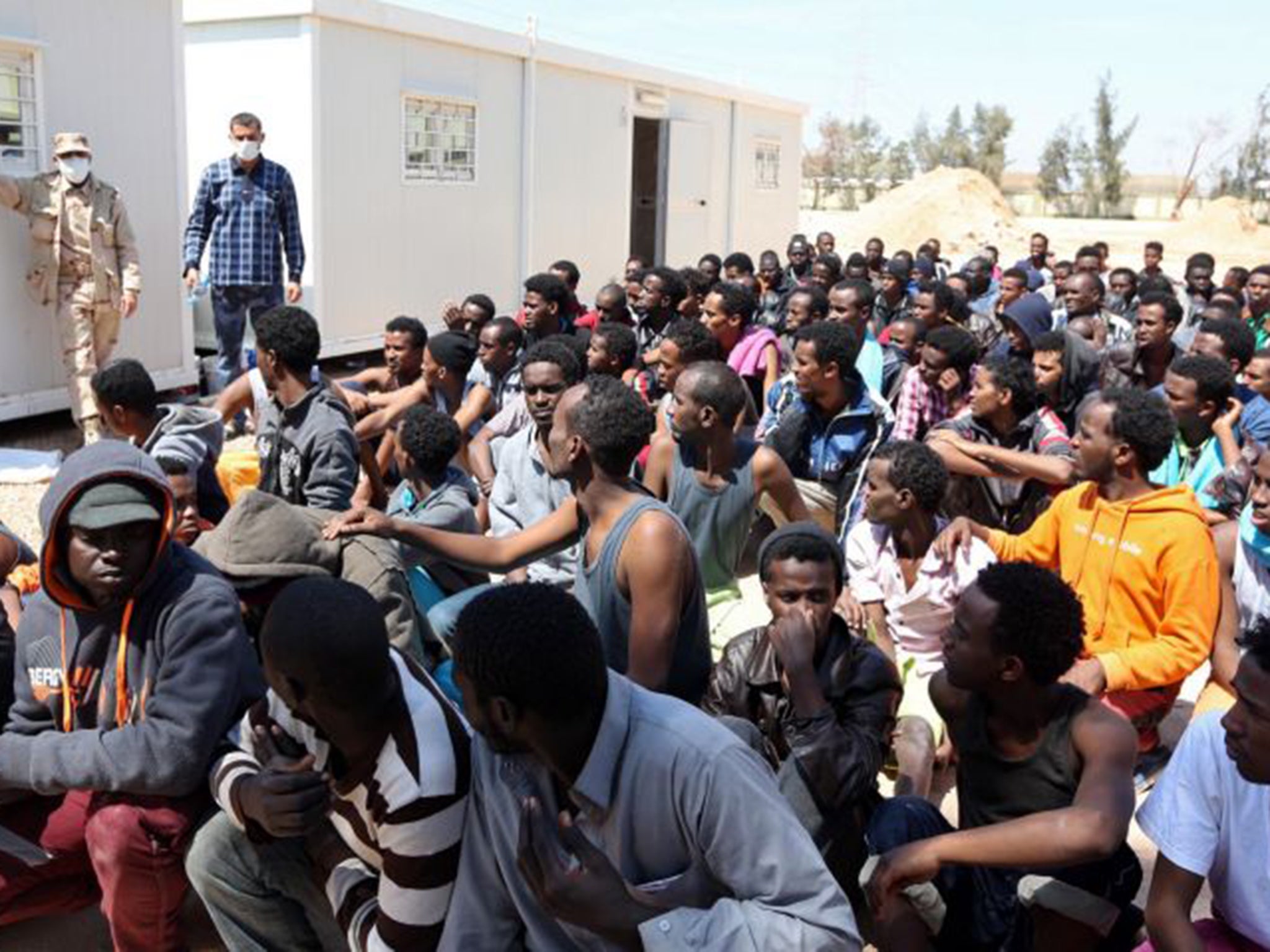Calls for UN-backed force to intervene in Libya to stop people smugglers
Malta's prime minister offered the radical solution to the migrant crisis

Malta’s prime minister, Joseph Muscat, called for perhaps the most radical solution to the Mediterranean migrant crisis yesterday, when he suggested that a UN-backed force should be ready to intervene directly in Libya to stop the people smugglers.
Libya is in a big enough mess already. The country has two competing governments, and increasingly extremist Islamist elements loyal to Isis are gaining a foothold. Sunday’s murder of 30 Ethiopian Christians followed a similar atrocity meted out to 21 Coptic Christians from Egypt in February.
A government broadly aligned with the Muslim Brotherhood holds court in the capital, Tripoli, while some 600 miles to the east, in Tobruk, the internationally recognised administration meets in a hotel. In between, Isis holds Sirte, while a plethora of local militia groups hold territory in key coastal towns, such as Misrata. It is in this atmosphere, and because of its proximity to Europe, that Libya has become the place in which the lucrative business of people smuggling can prosper. “There is no sovereign state in Libya, and that means that sub-state actors can do whatever they like,” said Jason Pack, president of Libya Analysis, a think-tank.
“The conflict is driving the people smuggling business. It is an open secret that the militia group in Misrata is quite involved. They do it for the money. They need the money to fight the other side, and like oil smuggling, people smuggling is a ready source of income.
“It is not dissimilar to the Taliban in Afghanistan and the opium trade. As soon as they run short of funds, they begin to increase heroin production,” he said.
In pictures: Migrant boat disaster
Show all 10The international community is in talks with moderates on all sides and slow progress is being made, but this presents its own problems: the UK and the United States are working on initiatives to resolve the crisis with the same Misratan rebels who are involved in people smuggling.
While the group in Misrata is far from being alone in exploiting these desperate people – many see it as a way of making a quick buck – it leaves open the question as to why pressure has not already been brought to bear. Optimists argue that the situation in Libya is gradually improving. At UN-sponsored talks, the special representative, Bernardino León, claims that the sides around the table agree on 80 per cent of issues.
Sadly, the missing 20 per cent includes armed groups on both sides, as well as Isis, who have no interest in UN-backed talks.
Subscribe to Independent Premium to bookmark this article
Want to bookmark your favourite articles and stories to read or reference later? Start your Independent Premium subscription today.

Join our commenting forum
Join thought-provoking conversations, follow other Independent readers and see their replies